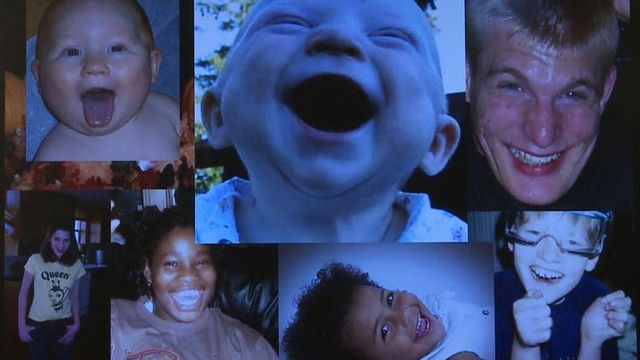UNC researchers hoping to cure rare genetic disorder
Researchers at the University of North Carolina Medical Center may be a step closer to finding a cure to a severe neurological disorder. The disorder, called Angelman Syndrome, is considered by some to be part of the autism spectrum disorder.
Posted — UpdatedThe disorder, called Angelman Syndrome, is considered by some to be part of the autism spectrum disorder.
It’s rare, occurring in one in 15,000 people, but causes severely impaired speech, intellectual disabilities and even sleep problems.
Dr. Ben Philpot, a neuroscience researcher, said there is a sunny side to the syndrome.
“They have this apparently happy disposition,” he said. “I like to think that they just find more humor in life.”
Caused by mutation in a single gene called UBE3A, Angelman Syndrome is inherited from the mother. Philpot says the disorder is tough to diagnose because the symptoms sometimes match up with other problems.
“They frequently have movement disorders,” he said. “Sometimes it’s been misdiagnosed in the past as cerebral palsy.”
Recently, Philpot and his colleagues found a way to awaken the dormant gene inherited from the father in genetically modified mice.
Using a drug often used to treat cancer, researchers were able to awaken the male gene. It’s a big development that could one day cure Angelman Syndrome altogether.
More testing will have to be done before researchers move to clinical trials in humans. Doctors will need to know how much of the drug they need to administer and how often they need to do it.
Researchers also want to make sure that turning on the dormant male gene actually changed the symptoms.
• Credits
Copyright 2024 by Capitol Broadcasting Company. All rights reserved. This material may not be published, broadcast, rewritten or redistributed.





